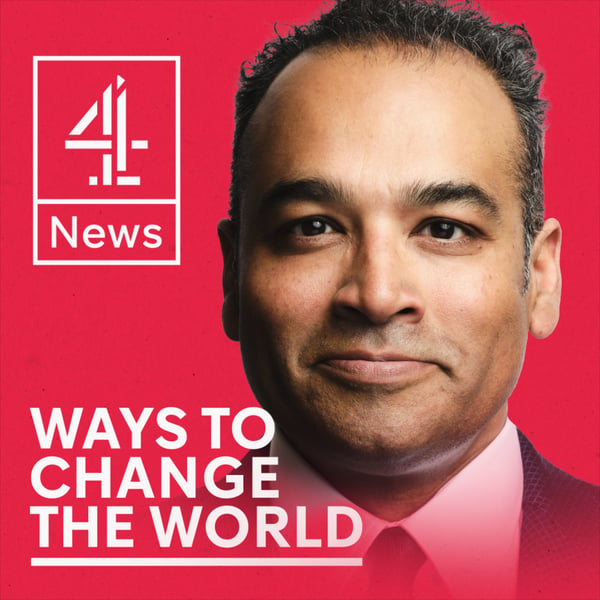Peter Frankopan on how humans have shaped the planet and how we’ll destroy ourselves
Ways to Change the World with Krishnan Guru-Murthy
Channel 4 News
4.6 • 1.1K Ratings
🗓️ 10 March 2023
⏱️ 35 minutes
🧾️ Download transcript
Summary
“We're the only species who have worked out to blow up everything and kill everyone”. In his latest book, The Earth Transformed, Peter Frankopan takes on the entirety of the history of planet earth, and looks at how our lives have been shaped by environmental changes since the dawn of our planet, 4.5 billion years ago, until the present day. He tackles the transformation of the earth, teasing apart the connection between humans and climate, explaining how “we are the product of massive climate change in the past”, and looks ahead to crises anew.
In this episode of Ways to Change the World, Peter Frankopan sits down with Krishnan Guru-Murthy to discuss how humans have impacted the world, the existential threat posed by nuclear war and global superpowers, and what happens “when the music stops”.
Produced by: Imahn Robertson
Transcript
Click on a timestamp to play from that location
| 0:00.0 | Hello and welcome to Ways to Change the World. I'm Krishnan Giri Murthy and this is the |
| 0:07.8 | podcast in which we talk to extraordinary people about the big ideas and their lives |
| 0:12.5 | and the events that have helped shape them. My guest this week has written a history |
| 0:19.1 | that begins at the start of time. Peter Frankapan is known for writing books that change |
| 0:25.0 | the way we think about history and the world. He's famous for the Silk Road which he wrote |
| 0:30.8 | some years ago and now he's he's written a book called The Earth Transformed, An Untold History. |
| 0:37.6 | And for a book that starts four and a half billion years ago, it's not bad, I mean it's chunky |
| 0:43.3 | but it's less than 700 pages. So Peter, welcome. So tell me what is The Earth Transformed |
| 0:49.9 | and Untold History about? It's a big broad history about all the different corners of this |
| 0:54.7 | amazing planet that we live on drifting through space since the beginning of time trying to see how |
| 1:00.3 | the natural world has formed around us, the things we don't often pay attention to, the oceans, |
| 1:04.4 | the continents, the distribution of rivers and how that's shaped our human history and in the same |
| 1:09.3 | time how we humans have adapted the environment for and the natural ecologies around us both for |
| 1:15.3 | good and for ill. So trying to re-center how we think about nature and the natural world as part |
| 1:21.9 | of the way in which our lives will play out. You begin your first chapter begins before |
| 1:26.7 | at the beginning of time and I wonder why and how reliable any of that's what's your source |
| 1:31.6 | material for four and a half billion years ago? I think the why start at the beginning of time is |
| 1:36.2 | because when we think about our own species it's easy to think that so we've been here from |
| 1:42.0 | the beginning you know that's the human experience is you know the way we think about history |
| 1:46.6 | and all the rest of it like you might say well it's unprovable and it's all very distant and we |
| 1:50.6 | don't really have any granular detail but at the same time we are the products of massive |
| 1:57.0 | climatic changes in the past so humans have been on this planet for about 0.001% of its existence |
... |
Please login to see the full transcript.
Disclaimer: The podcast and artwork embedded on this page are from Channel 4 News, and are the property of its owner and not affiliated with or endorsed by Tapesearch.
Generated transcripts are the property of Channel 4 News and are distributed freely under the Fair Use doctrine. Transcripts generated by Tapesearch are not guaranteed to be accurate.
Copyright © Tapesearch 2025.

